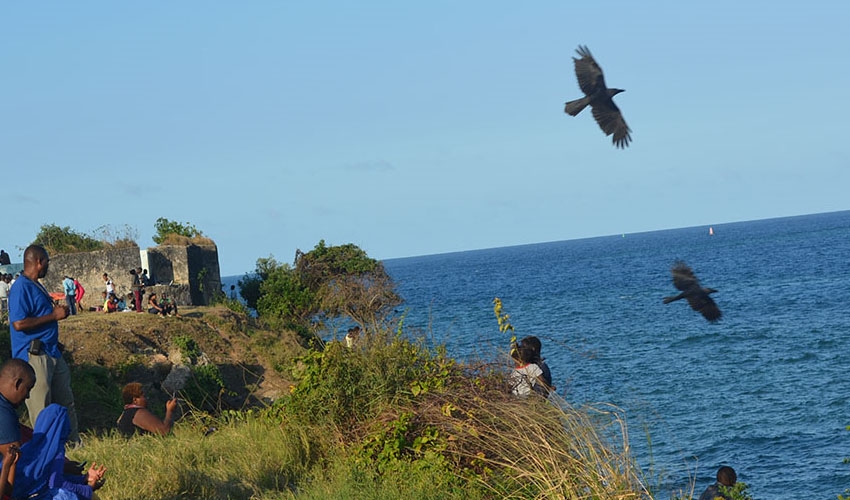What Your Contribution Can Do:
Recruitment and Training of Citizen Journalists
What does this entail?
The recruitment and training of a citizen journalist involves several specific tasks aimed at identifying, preparing, and equipping individuals to effectively report on grassroots realities and grassroots opportunities for economic empowerment and ecosystem restoration. Here’s a detailed breakdown of the tasks involved:
- Recruitment Process
- Outreach and Selection:
- Task: Conduct outreach to target communities, especially those living in conflict prone areas and areas suffering from ecosystem degradation.
- Cost Elements:
- Advertising (world of mouth, social media, local radio, and flyers).
- Engagement with local organizations to identify potential candidates.
- Administrative costs for application collection and review.
- Estimated Time: Rolling (ongoing).
- Outcome: Shortlist of candidates based on location, language fluency, smartphone literacy, existing activism and proven interest in citizen journalism.
- Screening and Interviews:
- Task: Screen applications and conduct interviews (both in-person through proxies and virtual) to assess qualifications, including the ability to report, language fluency, smartphone literacy, existing activism and proven interest in citizen journalism.
- Cost Elements:
- Communication costs (calls, virtual platform usage).
- Volunteer support costs.
- Estimated Time: Rolling (ongoing).
- Outcome: Selection of capable, passionate and committed citizen journalists with proven track record.
- Training Preparation
- Curriculum Development:
- Task: Develop and translate a citizen journalism training curriculum. The curriculum covers fundamental reporting skills effective content creation, phone-based editing of audio and video stories, ethical journalism, ecosystem knowledge, digital storytelling and transformative pan-Africanism.
- Cost Elements:
- Expertise in developing curriculum content.
- Materials (handbooks, guides, multimedia tutorials).
- Estimated Time: by October 31st 2024.
- Outcome: A structured training module that provides citizen journalists with foundational knowledge and skills.
- Logistics Planning:
- Task: Organize logistics for the training sessions (both online and in-person).
- Cost Elements:
- Venue booking (for proxy in-person sessions).
- Online platform subscription.
- Coordination of trainers and materials.
- Estimated Time: by November 30th 2024
- Outcome: Training dates, locations, and trainer availability confirmed.
- Training Sessions
- Basic Citizen Journalism Reporting:
- Task: Introduce the fundamentals of citizen journalism, including:
- Reporting ethics.
- Smartphone-based reporting
- Conflict dynamics
- Ecosystem knowledge and the importance of restoration.
- Cost Elements:
- Trainer fees.
- Training materials (presentation slides, printed materials).
- Duration: 1-2 days.
- Outcome: Trainees understand key citizen journalism concepts and their reporting responsibilities.
- Practical Reporting Skills:
- Task: Provide hands-on training on:
- Observation techniques.
- Interview skills.
- Data collection methods (audio/video recording).
- Cost Elements:
- Relevant hardware and software (smartphones, smartphone editing software).
- Trainer fees.
- Duration: 1-2 days.
- Outcome: Trainees gain practical experience in reporting and documenting local issues.
- Digital Storytelling and Multimedia Production:
- Task: Teach participants how to create compelling stories using:
- Smartphone photography and videography.
- Social media distribution and engagement.
- Foundational editing skills for audio and video.
- Cost Elements:
- Digital editing software licenses.
- Technical trainers.
- Duration: 1-2 days.
- Outcome: Citizen Journalists can produce and distribute high-quality multimedia content to support their stories.
- Post-Training Support
- Mentorship and Guidance:
- Task: Provide ongoing mentorship from Environmental Africa, including:
- Editorial feedback on stories.
- Support in crafting narratives using both anecdotal evidence and scientific data.
- Syndicate distribution of stories.
- Cost Elements:
- Communication and coordination costs.
- Editorial expertise fees and volunteer stipends.
- Estimated Time: Ongoing (for at least 6 months post-training).
- Outcome: Citizen Journalists receive continuous guidance to improve their reporting and distribution.
- Equipment Allocation:
- Task: Provide basic equipment such as:
- Smartphones for recording audio, video, and taking photos.
- Data bundles for internet research, posting stories, engaging viewers/readers and digital communication.
- Airtime for local communication
- Cost Elements:
- Smartphones ($70 each).
- Data plans or internet access fees.
- Airtime purchase
- Estimated Time: Within 1 month of training completion.
- Outcome: Citizen Journalists are equipped with the tools they need to start reporting and distributing their stories.
Summary of Tasks:
- Recruitment:
- Outreach and selection.
- Screening and interviews.
- Training Preparation:
- Curriculum development.
- Logistics planning.
- Training Sessions:
- Citizen Journalism basics.
- Practical reporting skills.
- Digital storytelling and multimedia production.
- Transformative pan-Africanism
- Post-Training Support:
- Mentorship and editorial guidance.
- Equipment allocation.
Each task is designed to ensure that citizen journalists are not only well-trained but also supported in producing high-quality, impactful stories.






